A league title was put on hold for Liverpool in a campaign where injuries ran rampant, but it failed to stop Bob Paisley’s men from their date with destiny as they lifted the club’s third European Cup in four years.
When Liverpool took to the pitch, at Wembley, for the 1980 Charity Shield against West Ham United, 366 days after they had dismantled Arsenal, in the 1979 playing of English football’s traditional opening act of the new season, they did so with the very same starting line-up that had so stylishly beaten Terry Neill’s FA Cup winners, 12 months earlier.
Ray Clemence, Phil Neal, Alan Kennedy, Phil Thompson, Ray Kennedy, Alan Hansen, Kenny Dalglish, Jimmy Case, David Johnson, Terry McDermott and Graeme Souness.
Even on the substitute’s bench, four of the five nominated by Bob Paisley against West Ham had been sat on the sidelines against Arsenal. Just as in August 1979, in August 1980 none of the substitutes would be given a run out.
This was as close as Paisley ever came to Bill Shankly’s old maxim when it came to naming his line-up: “same team as last year, lads.”
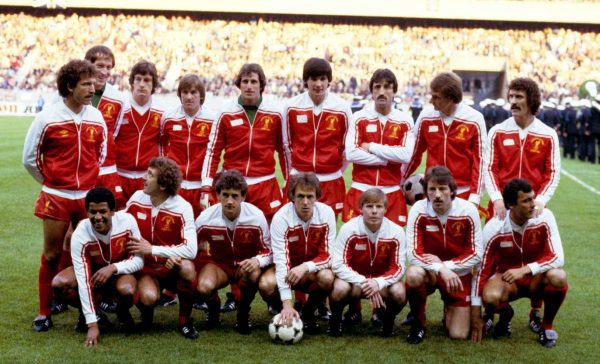
It was with the most glorious sense of Groundhog Day, that Liverpool won the league title, in 1979/80. Mirroring the previous campaign, they had fumbled the European Cup early but made it all the way to the FA Cup semi-finals, where they promptly blew another shot at the double.
Not quite as dominant in 1979/80, as they had been in 1978/79, it had still been a reasonably comfortable title win, fending off the very best punch that Dave Sexton’s Manchester United could throw, claiming the prize with a game to spare.
In the absence of European success in 1979 and 1980, Liverpool had had to ‘settle’ for domestic league supremacy instead.
No major signings were made by Paisley, in the summer of 1980, perhaps mindful of where he could fit any new expensive arrival, after the peculiar case of Frank McGarvey the previous season, who had been purchased from St Mirren for the not inconsiderable sum of £270,000, only to be sold to Celtic in March, for the very same fee, never having made a first-team appearance.
Even the option of bringing Kevin Keegan back from Hamburger SV was resisted.
Instead, Paisley spent big on potential. Swooping for Ian Rush and giving Chester City £300,000 for his services. Added to this, defensive cover was sought with Richard Money arriving from Fulham, a move which had most Reds wondering if old Bob had forgotten that he’d signed Avi Cohen.
Beyond this, Paisley seemed happy with the established talent he had, while he was content with the shadow players and youth products he had coming through.
Sammy Lee had made a slow-burning impression, particularly when covering for Case during the run-in to the 1979/80 title, while Colin Irwin and Cohen had stepped in for Alan Kennedy, without disgracing themselves.
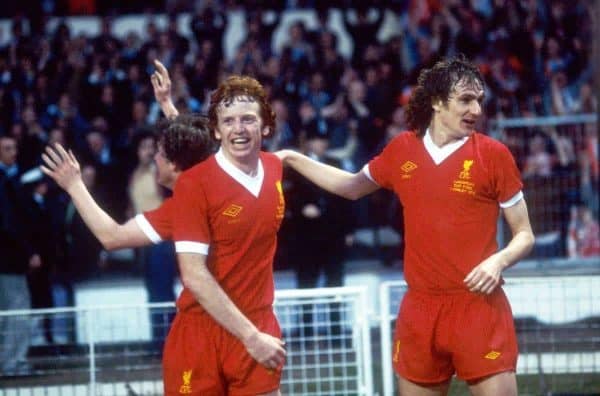
Further down the pecking order, there was the emerging Howard Gayle and Colin Russell, part of a rampant reserve side that also included Steve Ogizovic, Alan Harper, Dave Watson, Ronnie Whelan, Kevin Sheedy and regular contributions from Steve Heighway and David Fairclough.
As the 1980/81 season began, it seemed a case of more of the same, with Terry Venables’ highly regarded Crystal Palace dismantled, at Anfield, on the opening day.
An early defeat at Leicester City was shrugged off and over the course of Liverpool’s first 18 league games, the reversal at Filbert Street was to be their only First Division loss, taking Paisley’s side towards late-November.
A 2-1 victory, at home to the leaders Aston Villa, courtesy of two goals from Dalglish, the winner coming two minutes from the end, kept the reigning champions within touching distance of the summit.
Guilty of too many draws, Liverpool had been restricted to a point in half of those first 18 league games of the 1980/81 season, the last campaign of two points for a win.
Injuries were also beginning to take their toll. Alan Kennedy was struggling, already enduring the second of what would be four prolonged absences from the team. Even Kennedy’s replacement, Cohen, would succumb, bringing Money into the picture.
Thompson was the next victim, missing the win over Aston Villa and only regaining fitness intermittently for the remainder of the season, meaning Irwin became a regular sight.
Very early in the season, Paisley had elected to make Lee his favoured option on the right-hand side of midfield when Case suffered a recurrence of the injury that ruled him out of the run-in to the previous campaign.
Added to this, Johnson had also spent time on the injury list, which Fairclough made the most of, scoring a flurry of goals, only to see this impressive form curtailed by his own injury problems.
The loss of Fairclough gave Rush his debut, brought in as cover when Dalglish missed the draw at Ipswich Town a few days before Christmas.
Ending the year as league leaders, despite the problems bubbling under the surface, Liverpool had also navigated a route to the European Cup quarter-finals, putting ten past Oulun Palloseura at Anfield, then brushing off the challenge of Alex Ferguson’s Aberdeen. A place in the League Cup semi-final had been obtained too.
Unwittingly, Liverpool were heading into a New Year ambush.
Having eased past Altrincham, in the FA Cup third round, a week later they went to Villa Park without the services of both Thompson and Hansen. A makeshift central defensive pairing of Neal and Irwin struggled to form an understanding and the home team took advantage to win 2-0.
Before January was over, Paisley’s side had lost to bottom of the table Leicester for a second time and gone out of the FA Cup at Goodison, against Everton in the Fourth Round.
Another loss was sustained at West Bromwich Albion in early February, which left Liverpool six points adrift of both Ipswich and Aston Villa. Three days later, however, an in-form Manchester City were edged past, in the second leg of the League Cup semi-finals.
Inconsistencies put to one side, upon the horizon lay a European Cup quarter-final masterclass against CSKA Sofia, in which Souness was at his imperious best, scoring a hat-trick, during a 5-1 first-leg victory at Anfield.
Prior to this, Liverpool had been held to yet more draws, at home to Birmingham City and away to Brighton and Hove Albion. Against Birmingham, Paisley’s side was so stretched by injuries that Sheedy was handed his debut.
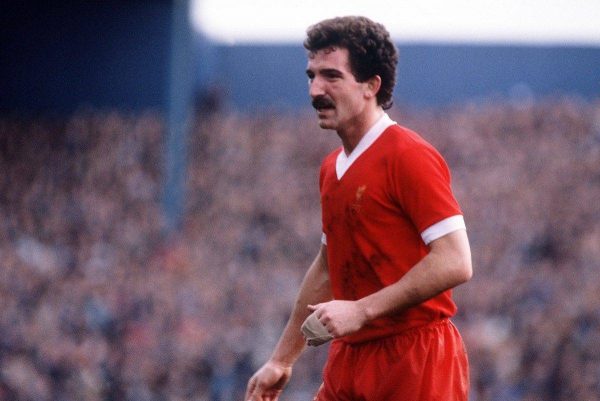
Four days before the return game against CSKA, Liverpool walked out at Wembley for the League Cup final, against the runaway Second Division leaders, West Ham United.
Missing Thompson and Johnson, Liverpool were on the brink of an extra-time victory until McDermott was compelled to punch a goalbound Alvin Martin header from under the crossbar.
Penalty expert, Ray Stewart converted from 12-yards to equalise following Alan Kennedy’s opener which sent the game to a Villa Park replay, two and a half weeks later.
A place in the European Cup semi-final gained, Liverpool followed that up by winning a scrappy Merseyside derby, 1-0, thanks to a John Bailey own goal before losing by the same scoreline at Highbury, against Arsenal.
Defeat in north London saw Liverpool labouring in sixth position, ten points behind the front runners, Ipswich. It was effectively a result that marked the Reds’ abdication as champions.
For the League Cup final replay a few days later, Paisley welcomed the return of Thompson, but was still without the goals of Johnson, while Souness was also ruled out.
Brushing off the blow of conceding early, goals from Dalglish and Hansen turned the game around before the half-hour mark on a night when Rush was brought in to lead the line and Lee was switched to central midfield, to cover the loss of Souness.
Paisley had secured Liverpool their first League Cup success and with it came a guaranteed place in Europe for the following season.
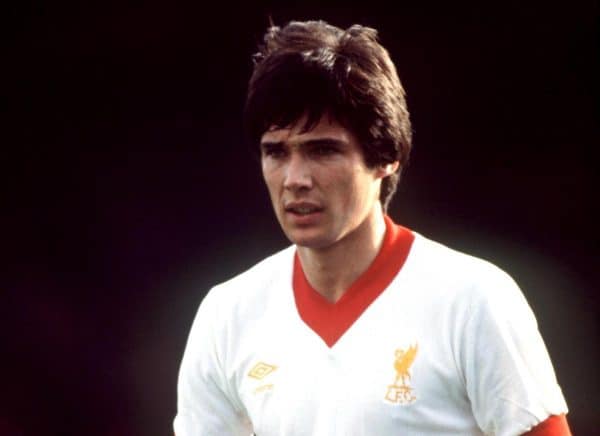
Winning the League Cup was an understated influence on the remainder of Liverpool’s season.
The threat of not qualifying for Europe erased, it was a more relaxed Liverpool that worked their way through their remaining games. Although, there was no let-up in the club’s injury jinx.
Ray Kennedy was forced to miss the visit of Stoke City and with a window on the future, in came Whelan, to make a goalscoring debut.
When Bayern Munich came to Anfield for the European Cup semi-final first leg, the Bavarians headed home with a precious goalless draw, on an evening when Johnson and Souness were again absent. The inexperienced Rush, arguably trying too hard, was easily handled by Klaus Augenthaler.
Failing to win any of their next three league games, including a 1-0 loss at home to Manchester United, Liverpool were given little chance of reaching a third European Cup final when they strode out at Munich’s Olympiastadion.
No Alan Kennedy, no Thompson and Dalglish lasting only nine minutes, the tie was as much turned by a leaflet advising Bayern supporters on travel plans for Paris as it was anything on the pitch.
Irwin alongside Hansen in central defence, Money at left-back, when Dalglish limped from the pitch in under ten minutes, the obvious choice of bringing on the experience of Case was ignored by Paisley.
Instead, the Liverpool manager turned to Gayle.
Asking the skilled winger to operate down the left, in front of Money, pushing Ray Kennedy up into his old role of striker was an inspired move.
Tormenting Wolfgang Dremmler, Gayle was a complete unknown to the Bayern coaching team. Added to Lee expertly shadowing the talented but arrogant Paul Breitner, it made for a disorientating evening for the home team.
Kicked again and again, but without punishment, Gayle eventually responded to the treatment he was being dealt.
Brandished a yellow card, Gayle became a marked man. Paisley, erring upon caution, replaced him on 70 minutes with Case.
Gayle, obviously disappointed, felt he had the discipline not to have responded a second time, but watched on from the bench as his teammates completed their perceived mission impossible.
Kennedy grabbed the all-important away goal, with only seven minutes remaining and despite Karl-Heinz Rummenigge getting an equaliser four minutes later, Liverpool went on to secure one of their finest European successes.
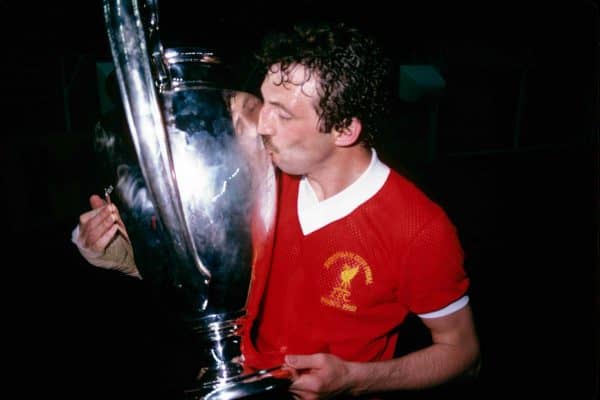
A race against time to prove their fitness for the final for a glut of players, Alan Kennedy, Thompson, Dalglish and Johnson all made Paisley’s starting line-up against Real Madrid, at the Parc des Princes, as a clean bill of health was given by all.
A poor spectacle of a game was decided eight minutes from time, when the Kennedys of Ray and Alan combined, as the latter received a throw-in from the former, before bursting into the Real penalty area, to be the most unexpected of European Cup final winning goalscorers.
The final minutes of the game marked the last acts in a Liverpool shirt of both Clemence and Case. Ray Kennedy, McDermott and Johnson were all unknowingly on borrowed time too.
New heroes were waiting in the wings.
For now, though, 1980/81 had brought a glorious third European Cup to Anfield. A stunningly familiar end to a season that had looked like business as usual, until the turn of the year.
Domestic inconsistencies were shelved, in the name of becoming champions of Europe, yet again.
Liverpool, 1980/81
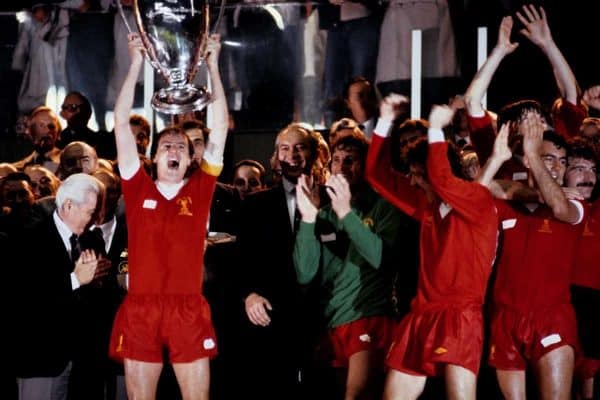
Manager: Bob Paisley
Captain: Phil Thompson
Top Scorer: Terry McDermott (22, all competitions)
Most Appearances: Phil Neal (63, all competitions)
League Position: 5th (51 points)
FA Cup: Fourth Round
League Cup: Winners
European Cup: Winners
Total games: 63
Games won: 31
Games drawn: 22
Games lost: 10
Clean sheets – league: 15
Clean sheets – overall: 24
Total goals: 113
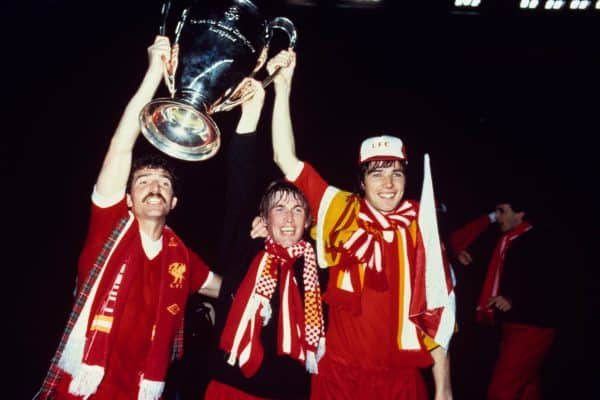





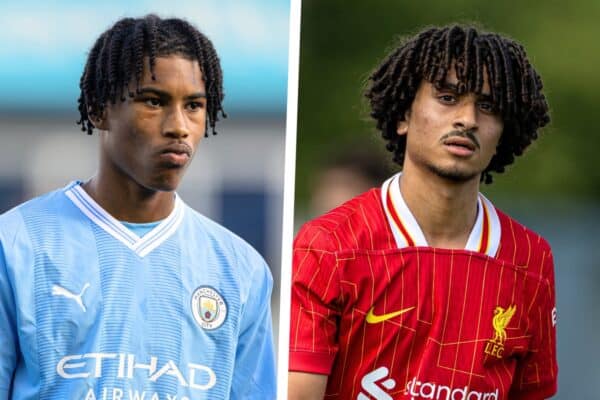
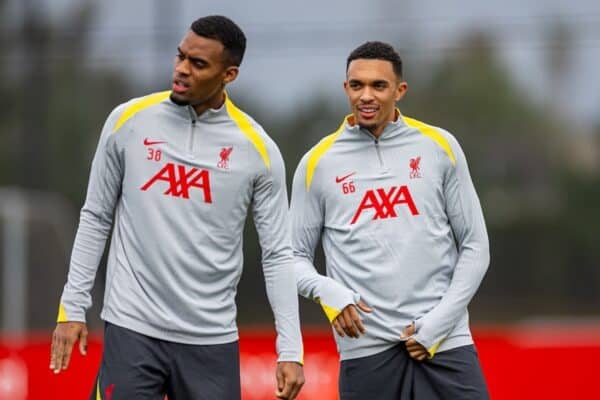
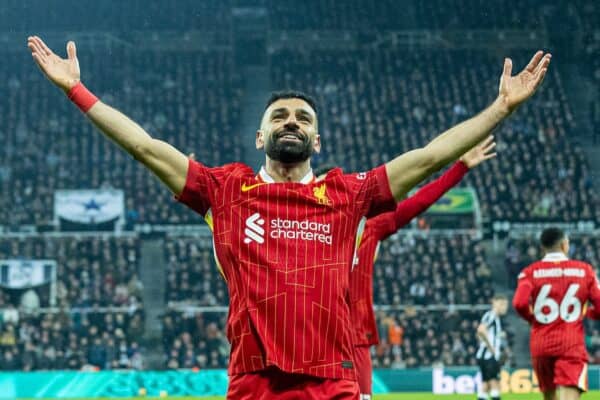
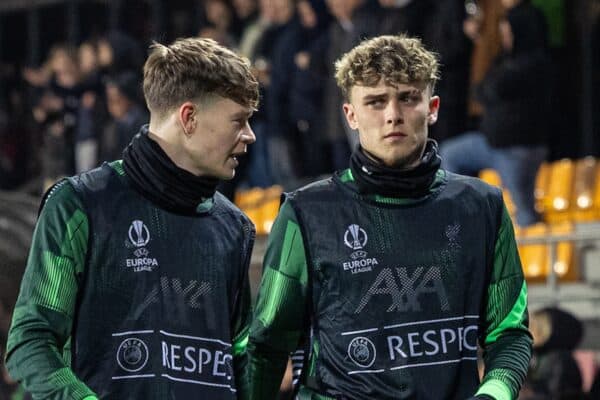
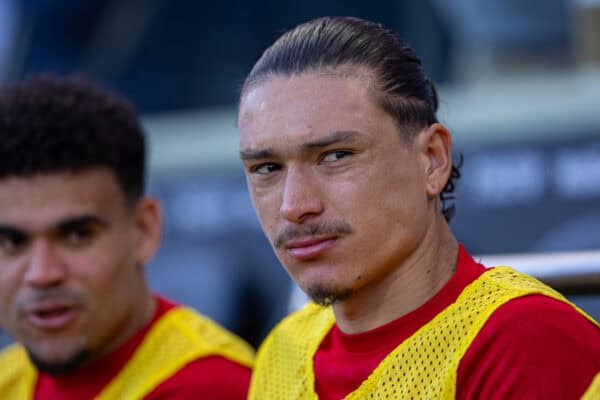
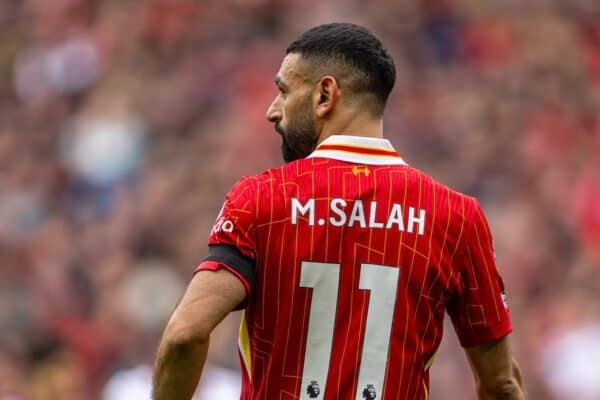

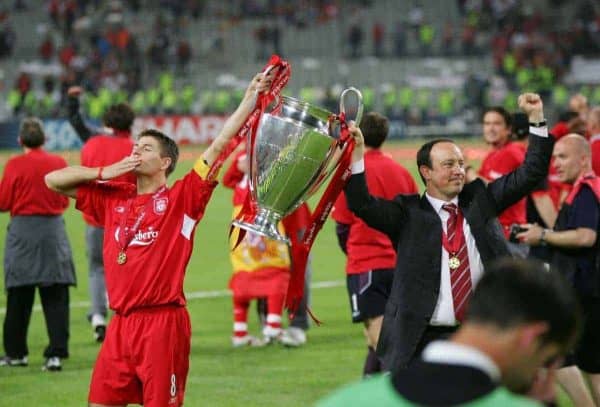
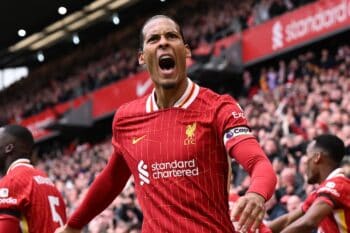
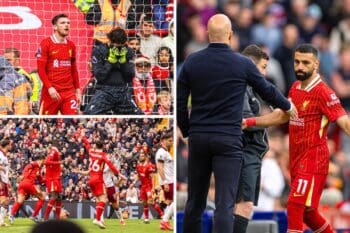
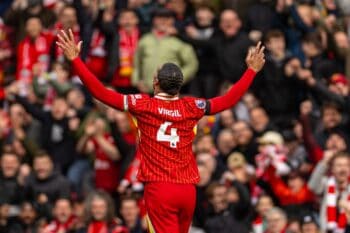

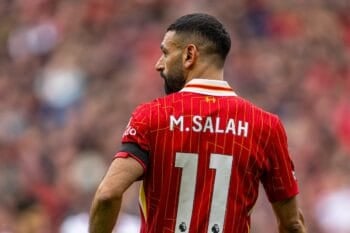
Fan Comments